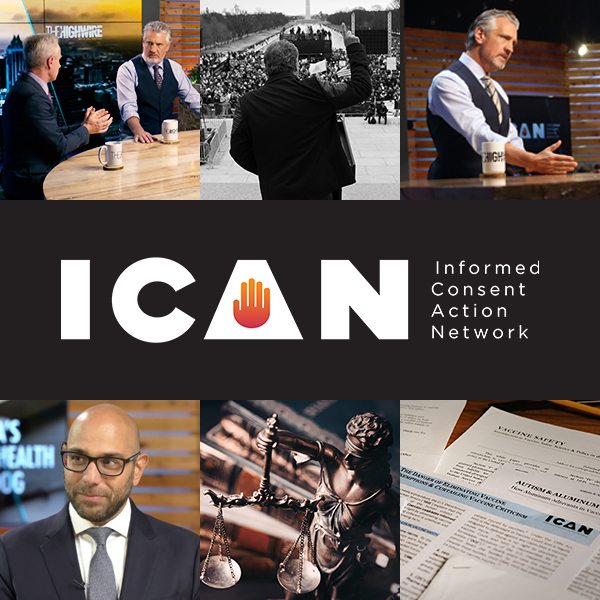Share this:

ICAN SUBMITS A COMMENT OBJECTING TO A NATIONAL ACADEMY OF MEDICINE AND YOUTUBE PROJECT AIMING TO CATEGORIZE AND INCREASE TRAFFIC TO “AUTHORITATIVE” SOURCES OF HEALTH INFORMATION ON YOUTUBE’S PLATFORM
YouTube retained the National Academy of Medicine (NAM) to conduct a project titled “Principles for Defining & Verifying the Authority of Online Providers of Health Information” in which it is tasked with producing “definitions of ‘authoritative’ sources of health information and the criteria by which these sources derive and maintain their authority.” An advisory group within NAM is planning to gather information and deliberate with the eventual publication of a paper based on its findings. ICAN submitted a comment addressing its concerns with this project.
ICAN’s submitted comment makes clear that it is inherently problematic for any one organization to define certain sources as “trustworthy” or “authoritative.” By doing so, the organization is, in essence, deeming all information from other sources to be untrustworthy and non-authoritative. ICAN specifically takes issue with YouTube assessing the authoritativeness of sources (for example, a state department of health) as opposed to assessing the specific, shared content (for example, what it says about COVID-19 vaccines) is highly problematic.
We are all familiar with the fact that government sources do not always provide authoritative information. For example, Congressman Thomas Massie discovered that the CDC was sharing inaccurate and unsupported information regarding the potential benefit of vaccines to individuals who have already had SARS-CoV-2. The vaccines’ clinical trial data did not support what the CDC was sharing with the public. However, even after the CDC acknowledged this, the information the CDC was sharing remained unchanged.
Likewise, as shared previously, ICAN has had to police many of the sources of information NAM may consider categorizing as “authoritative” with regard to their categorically false claims regarding COVID-19 vaccines. Details regarding these false claims and their removal based on ICAN’s policing can be found in a petition filed by ICAN with the FDA demanding that the FDA properly enforce its own regulations prohibiting false claims regarding COVID-19 vaccines.
These are but a few examples which demonstrate the drawbacks of any designation of authority which might be conferred on the source level. Simply because a source is a governmental or accredited organization does not deem it infallible or even trustworthy. The opposite is also true: simply because a source is not governmental nor accredited does not render it untrustworthy or not authoritative.
ICAN, whose YouTube channel for The HighWire has already been de-platformed, also raised the concern that social media companies will likely automatically ascribe information from government actors as “trustworthy” and “authoritative,” which may in turn lead to them censoring speech that government actors are prohibited from censoring directly because of the First Amendment. This could create a dangerous precedent by which voices that do not agree with the government are automatically muzzled by social media platforms.
A slippery slope is created when a private organization like YouTube defines, identifies, and raises what it considers authoritative sources above all others, especially where it uses government sources as a means to silence and censor private speech. “Enhancing the accessibility” of certain information simply because it comes from a certain source is cause for great concern and one that ICAN takes seriously and will continue to push back against.
